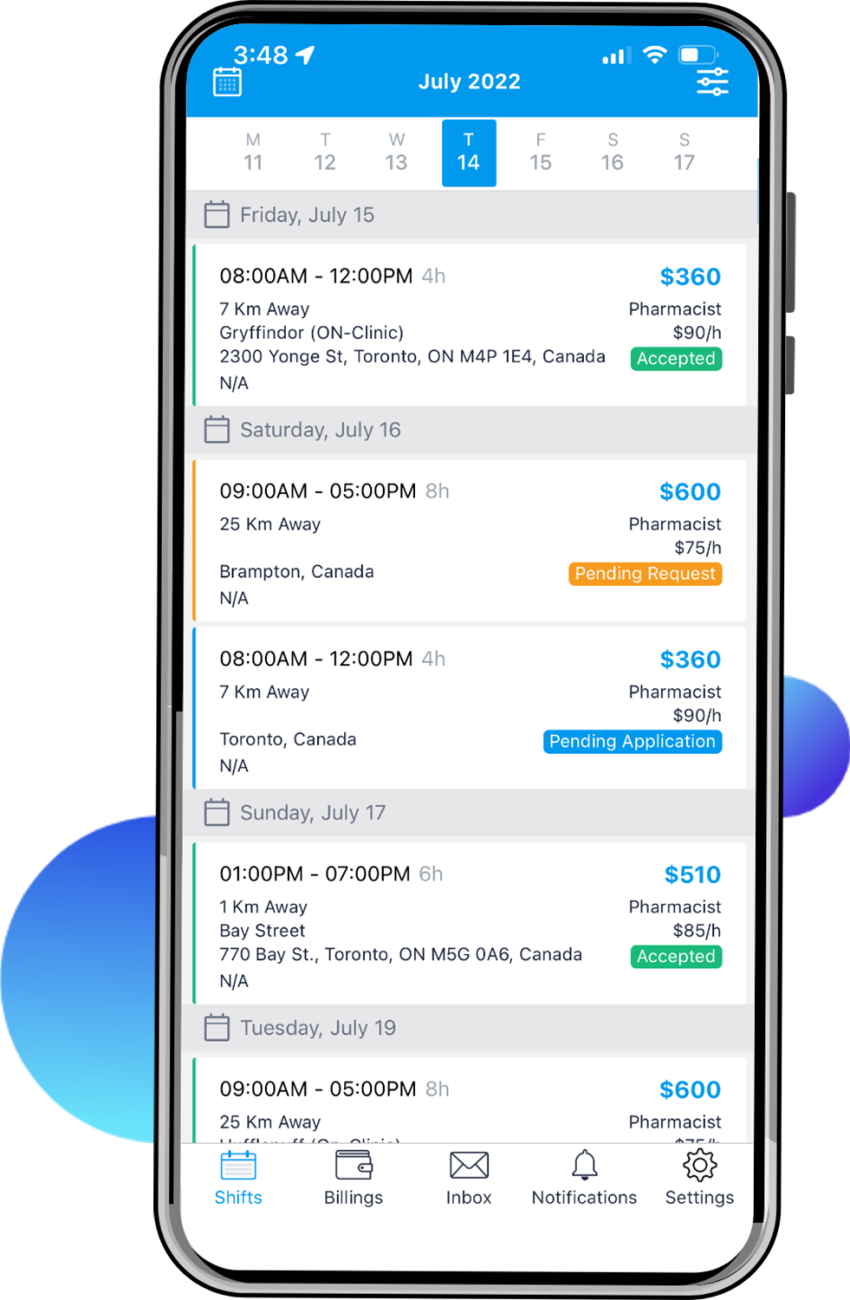
Tips for Networking in the Pharmacy Industry
Our Guide to Networking in the Pharmacy Industry. Pharmacy networking is the process of building meaningful connections with professionals.

Pharmacy networking is the process of building meaningful connections with professionals. It is used for career growth opportunities but isn’t exclusive to job candidates or job positions — it is something that should be continuously practiced throughout a person’s career. If you’re looking to learn more about pharmacy networking and how to go about developing connections, we’ve provided this guide to help you navigate the networking process.
“As a pharmacist, networking is an important process for future success, and avoiding it is a huge career mistake.”
As a pharmacist, networking is an important process for future success, and avoiding it is a huge career mistake. Not only is pharmacist networking the highest source of new employment, but it can also help you achieve your pharmacy career goals. You’ll be able to obtain advice, additional information about your career, and new opportunities in your field. Frequent networking can also boost your confidence and improve your communication skills.

Pharmaceutical networking can feel overwhelming because where and how you network determine the kinds of connections you’ll be able to make. If you’re unsure of how to start, we’ve provided some tips below.
To begin the pharmacy networking process, look up events in your community where you may find the best connections. Two common events include:

Charity events: Volunteering for and attending charity events in areas throughout your community are good ways to share your knowledge and skills with reputable organizations, and to find similarly skilled people to add to your network.

Conferences: At pharmacy conferences, you can attend workshops and panels that help you gain knowledge and develop skills. You can also meet new people who could potentially join your network.

Before you attend events for pharmacy networking, do some research to find out who will be there and what kind of opportunities will be available, such as workshops or panels. Create a plan of who to talk with and make a list of topics to discuss based on their expertise. It’s also a good idea to practice how you want to introduce yourself and the personal and professional information you plan to share.

Create an intention when attending events. Remember that you’re there to make connections and keep that purpose in mind as you meet with new people. Dress like a professional and put extra effort into your appearance. Actively listen to the people you are talking with and remain engaged in the conversation. Ask questions you have about the industry or ask employers what they’re looking for in pharmacy applicants.

Consider looking for opportunities in your community to work in new environments. A change in environment may be what you need to find new people to add to your network. Taking relief shifts for pharmacists who need time off or taking shifts at mass vaccination clinics gives you the chance to meet with and talk to pharmacists, pharmacy technicians, and other professionals. These new connections may provide valuable career leads or information to further you in your career.
“A change in environment may be what you need to find new people to add to your network.”
Pharmacy students should network as much as they can. Take advantage of all of the resources and functions your school provides. Attending job fairs and conferences and joining clubs can give you networking opportunities with other students, faculty members, pharmacists, and pharmacy technicians. Now is also the time to interview professors and connect with faculty members. Many faculty members will be happy to talk with you and provide tips for your future career. You can also take advantage of the mentor programs many pharmacy schools provide to connect students and faculty members with similar areas of interest.

Pharmacist networking connections can be found in unexpected ways, so be sure not to rule out any networking opportunities. If you work as an intern or a pharmacy technician, you may have opportunities to talk with pharmacists and other coworkers about field-related information or potential job leads. It’s also possible to find great connections outside of the pharmacy or healthcare industries. This can include creating a large network of friends and family as they may be able to provide general career advice, job leads and job referrals, or connections with people they know in the pharmacy industry.
Consider looking for opportunities in your community to work in new environments. A change in environment may be what you need to find new people to add to your network. Taking relief shifts for pharmacists who need time off or taking shifts at mass vaccination clinics gives you the chance to meet with and talk to pharmacists, pharmacy technicians, and other professionals. These new connections may provide valuable career leads or information to further you in your career.


Our Guide to Networking in the Pharmacy Industry. Pharmacy networking is the process of building meaningful connections with professionals.

Now that you’re finally out of school and ready to begin your career as a licensed pharmacist, you might be of two minds.

Are you considering a rewarding career as a pharmacist? Do you want to know more about a day in the life of a pharmacist and what you can expect during a typical shift?

Have you ever wondered what the difference is between relief pharmacists and locum pharmacists?
Have you heard about relief pharmacist jobs but don’t quite know what a relief pharmacist is?
Available for Pharmacy Owners
and Pharmacy Professionals
